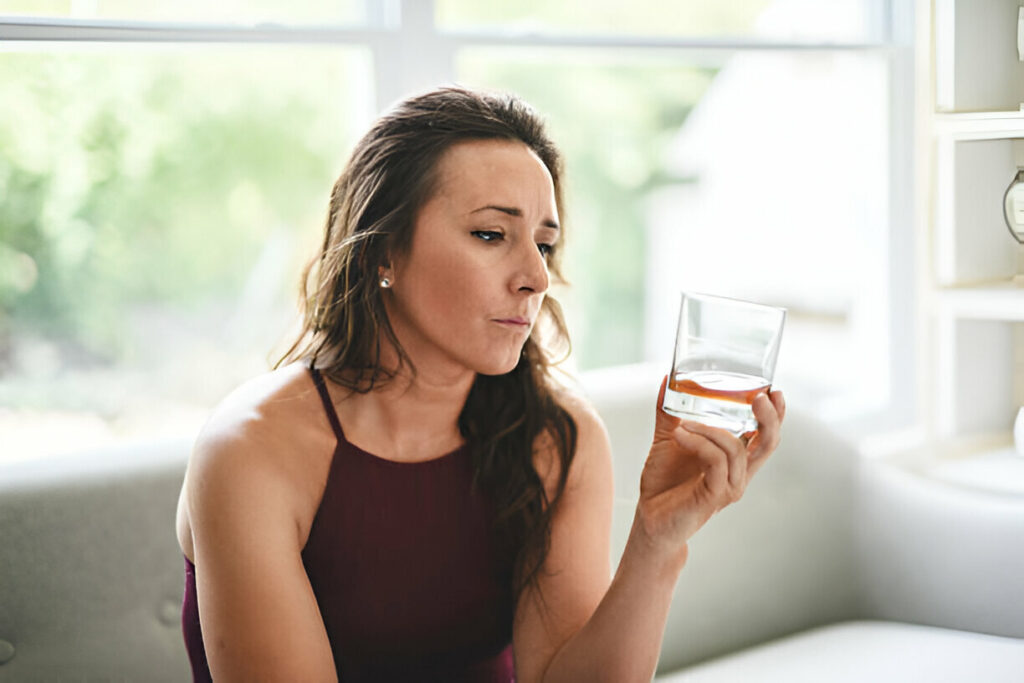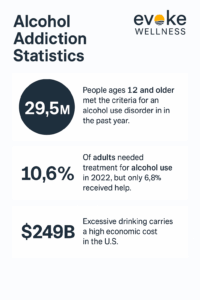For many first-time treatment seekers, the scariest part isn’t admitting there’s a problem. It’s not knowing what comes next.
If you’re here reading this, chances are you’ve already taken the bravest step: considering help. But maybe you’re wondering…
Will I be locked in? Will they judge me? What if I want to leave? What if I hate it?
These fears are normal. Starting treatment feels like crossing a line between two lives—the one you know, and the one you’re scared to hope for. At Evoke Wellness Ohio, we understand that. So, let’s take the fear out of the unknown and walk gently through what a typical day looks like inside an alcohol addiction center.
Mornings Begin with Safety and Routine
Each day starts quietly. No alarms, no chaos—just structure. You’ll wake up in a clean, calm environment with staff nearby. A nutritious breakfast follows, often shared with others going through the same thing.
The day formally begins with a community check-in or morning meeting. This isn’t therapy—just a chance to say hello, share how you’re feeling (if you want), and hear what the day holds.
For many, it’s the first time in a long while that mornings feel manageable. No hangovers. No hiding. Just a soft place to land.
Group Therapy: Where Isolation Starts to Break
Later in the morning, most centers hold group therapy sessions led by licensed clinicians. These groups explore topics like:
- Understanding the cycle of addiction
- Naming emotions without shame
- Building trust again (especially with yourself)
At first, you may just sit and listen. That’s okay. There’s no pressure to speak. Just being there is enough. Over time, many people start to feel safe enough to open up, finding their voice again through the presence of others.
It’s a powerful shift: realizing you are not alone, and never were.
One-on-One Counseling: A Place for Your Story
In addition to groups, you’ll meet regularly with your personal therapist. This private space is where deeper healing starts. Whether you carry unresolved trauma, shame about your drinking, or fear that recovery will change who you are—this is the place to unpack it.
Our clinicians are trained to meet you without judgment. They’re not here to fix you—they’re here to understand you, to walk beside you, and to help you see yourself with more kindness than you might be used to.
Afternoons Are About Building Tools
After lunch, the pace often shifts to skills-building. You may attend educational sessions or workshops on:
- Triggers and cravings
- Stress management
- Communication and boundary setting
- Life after treatment: building sober support systems
These aren’t lectures. They’re interactive sessions where you can ask questions, explore what applies to your life, and start building a plan that fits you—not a one-size-fits-all model.
This is also where you’ll learn about aftercare options, like outpatient programs or sober living arrangements, especially if you’re attending our alcohol addiction center in Hilliard.
Movement, Rest, and Wellness Activities
No one expects you to be “on” all day. Movement and rest are essential parts of healing, too.
Depending on the program, afternoons might also include:
- Gentle exercise or yoga
- Time outdoors (weather permitting)
- Art, journaling, or mindfulness groups
- One-on-one support with case managers or nursing staff
These activities are less about productivity and more about regulation—helping your body and nervous system settle. After months or years of pushing through stress with alcohol, this slower rhythm can feel strange at first. But over time, it becomes a source of peace.
Evenings Invite Reflection and Connection
Dinner is often shared with the same group you’ve gotten to know throughout the day. Many clients say this becomes their favorite part—not because of the food, but because of the people. Sharing space with others who understand what it feels like to need help and actually get it can be unexpectedly healing.
Evening activities vary, but might include:
- Optional 12-step or recovery peer groups
- Movie night or music hour
- Quiet time, journaling, or informal staff check-ins
Nights are calm. Phones and outside distractions are limited on purpose—so you can be present with yourself. That might sound intimidating now. But for many, it becomes the part they miss most when they leave: the quiet safety of being known and not judged.
You’re Not Locked Away—You’re Stepping Toward Yourself
There’s a myth that inpatient treatment is about being cut off from the world. But it’s actually about coming home—to your body, your feelings, your future. At Evoke Wellness Ohio, we don’t force healing. We create the space for it to begin.
If you’re afraid, that means you care. It means part of you wants to get better. That’s not weakness. That’s wisdom.
FAQ: Common Questions About Inpatient Alcohol Addiction Centers
Do I have to stay the whole time if I change my mind?
In most cases, clients enter treatment voluntarily—and can leave if they choose. But we encourage anyone considering leaving to speak with staff first. Often, feelings of discomfort are part of early withdrawal or emotional overwhelm, not a sign that treatment isn’t working.
Will I be forced to share in groups?
No. Group therapy is a space to be seen and supported, not to be pressured. Listening counts. Speaking when you’re ready counts more.
Can I talk to my family while I’m in treatment?
Yes—usually after an initial stabilization period. Our staff helps coordinate healthy, supportive communication that won’t derail your progress.
What happens after I leave?
That’s something we plan for together. Discharge planning begins early and includes connections to outpatient care, sober housing, therapists, and local resources. At Evoke, we believe recovery doesn’t stop at discharge—it just changes shape.
Is detox included in inpatient care?
If medically necessary, yes. Evoke Wellness offers alcohol detox as part of our continuum of care. Visit our alcohol detox center in Hilliard to learn more about this option.
One Last Thought
Every person who enters treatment brings two things: pain, and possibility. You don’t have to have it all figured out. You don’t have to be confident. You just have to show up.
And if you’re still reading this, maybe that part of you—the quiet voice that still wants something better—is already showing up.
Ready to take the first step?
Call (866)430-9267 or visit Contact Us. We’ll meet you with calm, clarity, and care—exactly where you are.



